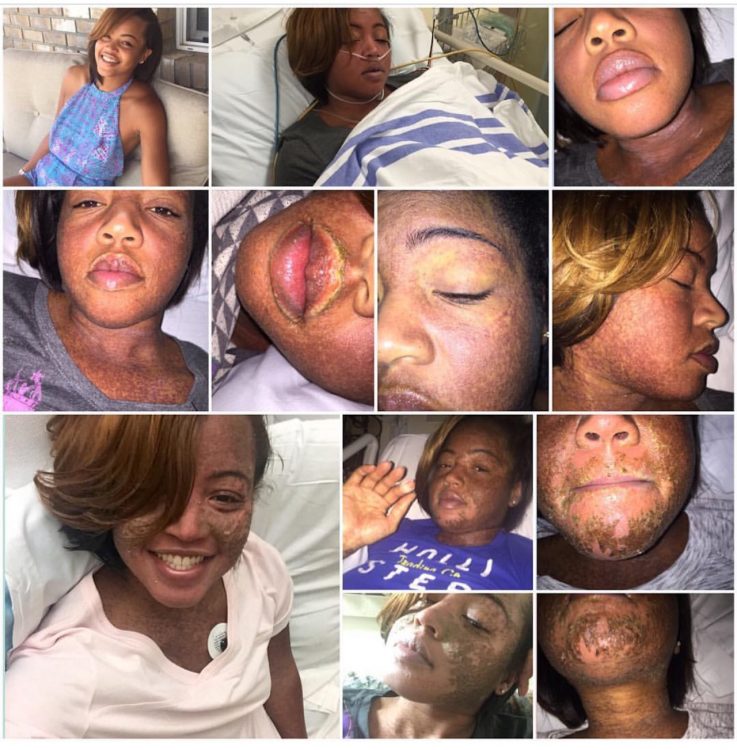Truth: tro͞oTH/ noun
- the quality or state of being true.
“he had to accept the truth of her accusation”synonyms: veracity, truthfulness, verity, sincerity, candor, honesty.
Why as human beings are we not able to tell the whole truth and it be OK? What is it about the truth that scares us and allows us to evade it until its presence is absolute? If I knew the answer I wouldn’t be asking. However, the curiosity of it reminds me of an article I read that likened curiosity to rebellion. Inquisitive minds, the intellectually stimulated, sapiophiles all have mastered this ability. Questioning the status quo or accepted truth takes courage, as does telling the truth though.
It’s like the saying goes, “Don’t ask questions you aren’t prepared to hear the answers to.” It’s not the questions that frighten many of us, it’s the answers. It’s what hides behind those words, those feelings that make it easier to ignore them than address them. I find this to be especially true when discussing my battle with diseases no one has heard of. When I tell people I have DRESS syndrome their gut reaction is disbelief. Pictures clearly exhibiting the truth are received with a sense of disassociation, the picture cannot be me. Somehow people still have trouble accepting and believing the truth, my truth!
In a society decorated with celebrations of “adulting” and “being honest,” a demand for transparency and truth seems to be absent at the basic level of human interpersonal communication. The simple act of speaking your mind has become so taboo and convoluted with capitulations of feigned politeness. We as humans seem to have become so terrified of what we do not understand, denying a truth because it is not a part of our experience. For me, being seen as “different” because I have illnesses people cannot see is fine with me, but when is it OK to accept that to deny ourselves the respect of honoring our truth is another form of discrimination altogether?
I don’t believe in a universal truth at a scientific level, though I don’t reject its existence. For me I choose the side of: a person’s truth is just as much fact as anything else, because it is theirs. If it is true to you, then it is still fact in comparison. Just because your feelings or thoughts aren’t affirmed by someone else, doesn’t make them any less true. Just because people haven’t heard of my diagnosis doesn’t eliminate the diagnosis and even if I didn’t have one, it doesn’t change what and how I feel.
I mean, think about it: this concept is no respecter of persons or ideas. Whether it’s as simple as you think someone’s shoes are ugly or global warming is a thing, it’s true to you so therefore it’s true. But my curiosity lies within the moments when we realize this truth for ourselves, and when we decide to say it out loud or bury it. Why aren’t we more honest with one another? Why don’t we say how we feel? Why don’t we question more? Why do we go through the motions rather than being upfront and honest with ourselves and others about what is true for us? Why, when someone reveals their truth, can we as a society not accept that it may not be true for us individually, but it is indeed true for that person?
At a basal level we’re very afraid of hurting ourselves, being different from who we think we are. For example, I recently wrote about ‘The Real Housewives of Atlanta” stars’ reaction to Porsha Williams’ illness. If you’re not familiar, Porsha revealed she was unable to attend a wedding in Africa due to the long flight and her health accommodations. None of her friends believed her. It was more so that once one didn’t believe, they all didn’t. Can you imagine how different that scenario would have played out if one person who have chosen not to participate in group think? If they would have said, “Well, I understand you all don’t believe her, but I do.” That simple act may have had the potential to open the rest of the women’s minds to accepting something as true even though they hadn’t personally experienced said truth.
One of the most interesting quotes I have ever read was, “All humans by nature desire to know, except for the depths of our own souls.” At the crux of this conundrum is our fear of ourselves, or our truth. Truth in accepting maybe we aren’t that nice, we aren’t that empathetic, or maybe we are all of those thinsg but we are afraid to live in and walk in that truth because we don’t want to be seen as different. Realizing we are more than the persona we deliver daily. We are scared of our raw, unpolished, unfiltered, unapologetic selves. It is not others we are afraid of in the moments after realizing our truth, it is ourselves. In the end, I’m not as worried about others accepting me as much as I am afraid of me accepting who I am. Maybe my gut reaction isn’t something I’d approve of, but if it’s how I honestly feel, I hope to have the courage to accept that. You following?
I think the thing that plagues me the most is the passive aggression that everyone continually practices. We passively confront, passively confess, passively apologize, we are passive even with ourselves. Why do we tell heartfelt lies rather than just first accept and or then share our truth…with ourselves and others?
It breaks my heart and baffles me. We’d rather tell beautiful heartfelt lies than admit the sometimes ugly, oftentimes beautiful truth. Even with good things. We realize we love someone and don’t want to tell them. Fear, ego, expectations, even society get in our way of admitting it. We tell our parents we’ve been busy when we really just didn’t feel like talking, we say we hate someone and we’re angry for what they did to us when really they’ve hurt us so badly that it’s torn us apart. We’d rather tell these heartfelt lies than process and accept what is actually true to us and others simply because it’s difficult to wrap our minds around.
It’s a vicious cycle. It’s like the euphemism, “hurt people, hurt people.” We carry around our hurt, our hopes, our joys, afraid to allow ourselves to acknowledge them for fear of what they might reveal to us. In the process we deeply hurt ourselves and others, only to realize it when so much time has passed we no longer know why we’re really unhappy in the first place. All the while becoming Pandora’s box, locked away in our mind, buried in our heart. Only to be unearthed when our own truth becomes absolute.
So all of this is entirely speculation in so much as I’ve realized there are some beautiful personal truths I have. For one, “if you bleed for me I will bleed for you.” That is in fact a thing. I’ll do anything in my power for someone I care about, no questions asked. But I also know there are some truths I don’t even realize exist because it’s buried. I know that having an illness I do not fully comprehend and trying to express that frustration and hurt becomes monumentally challenging when people cannot accept my truth because they haven’t accepted theirs.
I don’t know what deep hurts can be resurfaced. I mean aside from the whole “I almost died” thing, I still have a whole life of living that has shaped and molded me, both for better and worse. As scary as it sounds, I want to be brave enough to acknowledge and own my truths. I want to walk in the light and be able to say yes, I have a disease you and I both don’t understand but I still have it. I want to wholly and authentically be me, unashamed of my feelings, my illnesses, my battles, my defeats and my victories! Exploring and understanding myself in ways I hadn’t thought imaginable. The possibility of inner peace, personal euphoria, being completely and utterly happy with who you are – all of who you are. This, this sounds more wonderful than it ever could be terrifying.
Though my truth isn’t always pretty, though it isn’t always understandable, like your truth, it is still true. Never let anyone convince you otherwise!
We want to hear your story. Become a Mighty contributor here.


